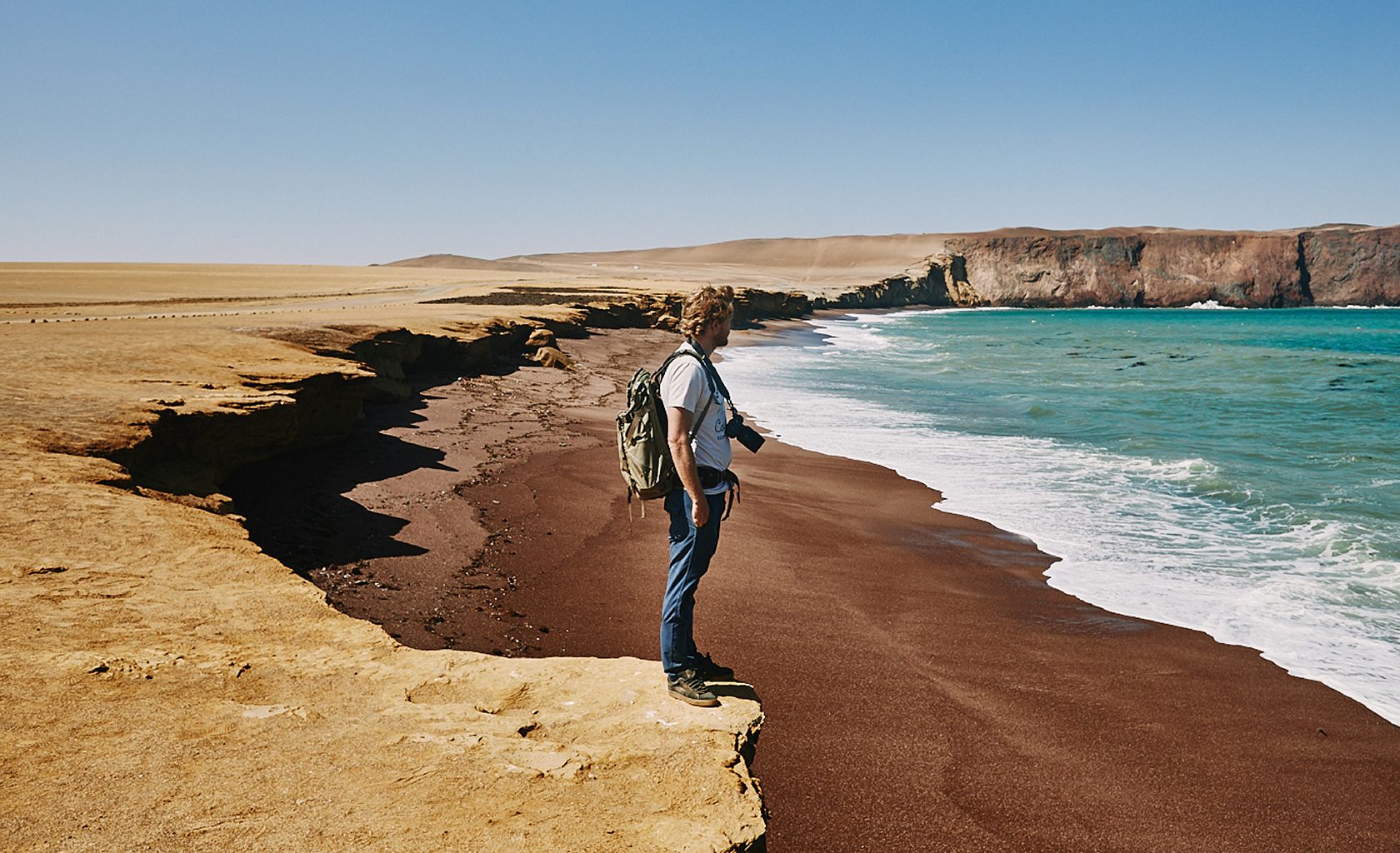How To Travel Forever Without Running Out Of Money

Vivienne Egan is a freelance writer/editor and co-founder of Taylor…
When you picture the kind of person who leads a life of constant travel, your first thoughts will probably flit to the moneyed trust fund brat, or perhaps the perennial backpacker whose age has long surpassed the usual demographic of youth hostels, or George Clooney in Up In the Air.
[related_articles]31832,18297[/related_articles]However, continuous travel is becoming available to more and more people as a small – but growing – number of people are throwing traditional employment to the wind to become “digital nomads”: ordinary people with often quite regular jobs, who work as they travel the world, thus never having to accrue leave to go away, or blow all their cash on that one “trip of a lifetime”.
While best estimates are that there are only a couple of thousand of digital nomads, there are hundreds of digital nomad blogs and a smattering of forums and communities, and plenty more wannabes desperate to find out how to cast off the shackles of the nine-to-five office job and join the tribe of vagrant laptop workers.
So what’s it like to be a digital nomad? Here’s a brief (and by no means comprehensive) primer on how to be a digital nomad and what to expect when you get there.
The people

Remote employees
Got a job that you can do entirely from home? Increasingly resenting traipsing into the office each day? Shoot for the moon and ask your boss if you can trial performing your job from abroad.
It might take some clever tech workarounds with VPNs, remote network access and copious Google Hangouts, but if you can prove that you can do your job just as well in Paris as in Melbourne, you’ve got the sweet, sweet security of a pay cheque plus some of that ever-elusive freedom. Better still, some employers are starting to advertise remote job opportunities (including, famously, tech startup Buffer), meaning you may never have to meet your boss face to face, much less be called into their office.
[related_articles]56147,55910[/related_articles]Freelancers
Many a digital nomad prefers the freelance life to the employed life. It takes more effort and involves less certainty, but it also means you’re flexible and you can usually charge more. This kind of work is suited to developers, marketing consultants and copywriters but can also be done by lawyers, accountants, engineering consultants, therapists and real estate agents.
It just requires a few creative solutions, some solid clients and a decent work ethic (although the thought of not eating if you’re not working usually fixes that problem). Freelance job sites are a good place for beginners to build up some basic client work.
Online entrepreneurs
Perhaps the most celebrated digital nomad career path is the entrepreneur. They’re the most visible members of the digital nomad community – they’re frequently brash evangelists for the lifestyle, often with tens of thousands of social media followers, mega blogs, books, podcasts and conference appearances to their names; you won’t have to look too far to find them.
Online entrepreneurship comes in many forms – from high concept startups to the seamier side of “make money online!” promises – and all of them are represented within the digital nomad community.
The perks

There are plenty of obvious benefits to being a digital nomad: travel, freedom, cheaper cost of living (depending on location), the envy of your family and friends, expanding your horizons and achieving your own version of the work-life balance.
[related_articles]53402[/related_articles]You end up meeting other digital nomads who are impressive and inspiring, people committed to living extraordinarily. Never having to commute to work, deal with an awful boss or put up with office banter are probably quite beneficial to longevity and inner peace, too.
The pitfalls

However, there are also a lot of hidden drawbacks. For instance, when you’re working on setting up any kind of business, you’ll often find you’re working many hours more than at a desk job. And then, there’s loneliness: it’s difficult to make friends, as well as to keep the ones you have when you’re constantly travelling.
Perhaps in response to this, many digital nomads travel as couples; there are also a lot of single men, but far fewer women. Part of this gender discrepancy could be owing to the fact that the movement of digital nomads has in many ways been spearheaded by lifestyle guru Tim Ferriss — who found fame with The 4-Hour Work Week, an aspirational guide to creating a self-perpetuating business that brings in “passive” income, but who is also popular in the pick-up artist scene. Whatever the reason, the macho posturings of “digital bromads” are something of a fixture in digital nomad communities both on- and offline.
[related_articles]24698,28279[/related_articles]There’s also no denying that there’s a certain amount of privilege backing those who choose to travel the world in this fashion: owning a laptop, having marketable white-collar skills and the knowledge that you could crash back home with mum and dad if it all flops are indicators that this lifestyle is much easier for some than others to adopt.
The places

So, where do digital nomads go? Aside from everywhere, that is? Well, any digital nomad blogger worth their salt will advise a newbie nomad to head to Thailand (specifically, Chiang Mai and Bangkok), Mexico (Playa del Carmen, Oaxaca) or Spain (Barcelona and Valencia) where the weather is good, the cost of living is cheap and the internet connection is relatively reliable. However, South America, Turkey, Berlin, The Philippines, Gran Canaria, Budapest and Vietnam are also popular. Though cheap countries are tempting, there’s also a risk that you’ll never be able to afford to live elsewhere, so beware resting on your laurels just because you can afford to live like a king in Thailand.
Thinking of the long term, there are people out there who have no home and no intention of slowing down. Some travel with kids, homeschooling as they go; others are approaching middle age. You’ll find some nomads who spend up to a year in one place before moving on to the next. Others might spend only a few weeks before upping sticks. There aren’t any rules.
This is part of what makes it a difficult choice, when for most of our lives we live by a script that tells us how and when to move from one stage to another. From school to employment to home ownership, we all know what’s expected of us – being a digital nomad is about tearing up the rulebook and writing a new script, which is equal parts thrilling and terrifying.
Vivienne Egan is a freelance writer/editor and co-founder of Taylor Hermione & Co. She's also a digital nomad who tweets from @VivEgan41.








